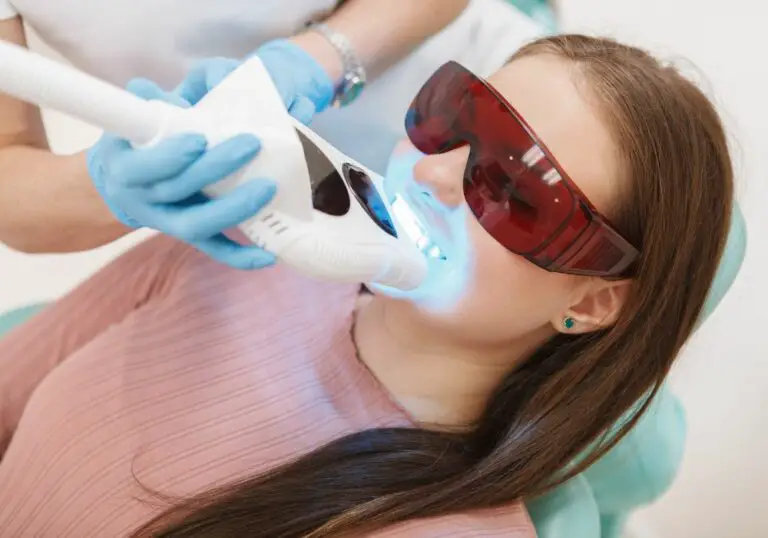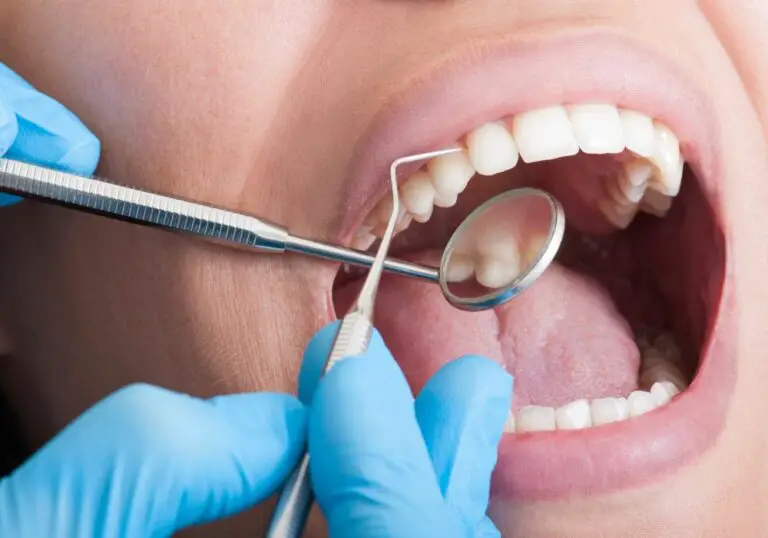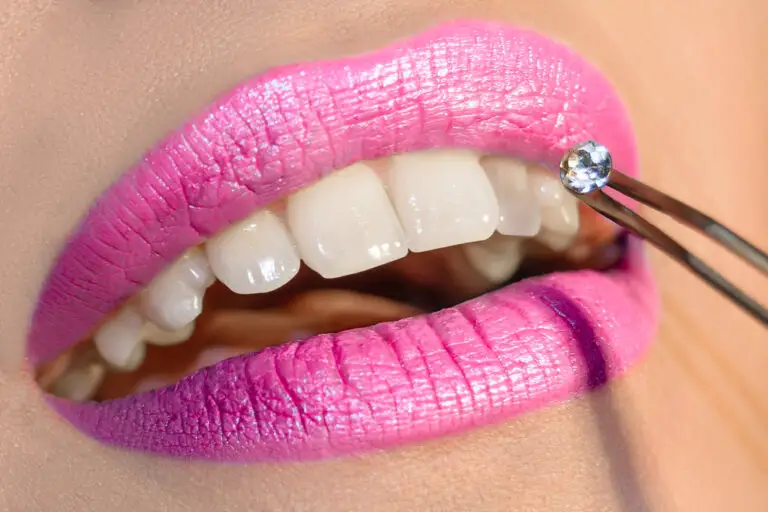Are denture teeth acrylic? This is a common question among those who wear dentures or are considering getting them. The answer is yes, denture teeth can be made of acrylic.
Acrylic resin is a popular material used in denture teeth because it is lightweight, easy to adjust, and adheres well to the denture base. Acrylic teeth are also less expensive than porcelain teeth. However, one disadvantage of acrylic teeth is that they wear down faster than porcelain teeth, which can affect the way they fit and function over time.
It’s important to note that not all dentures are made the same way or with the same materials. Some dentures may have a combination of acrylic and porcelain teeth, while others may have entirely porcelain teeth. Your dentist can help you choose the best type of denture for your needs and budget.
Understanding Dentures
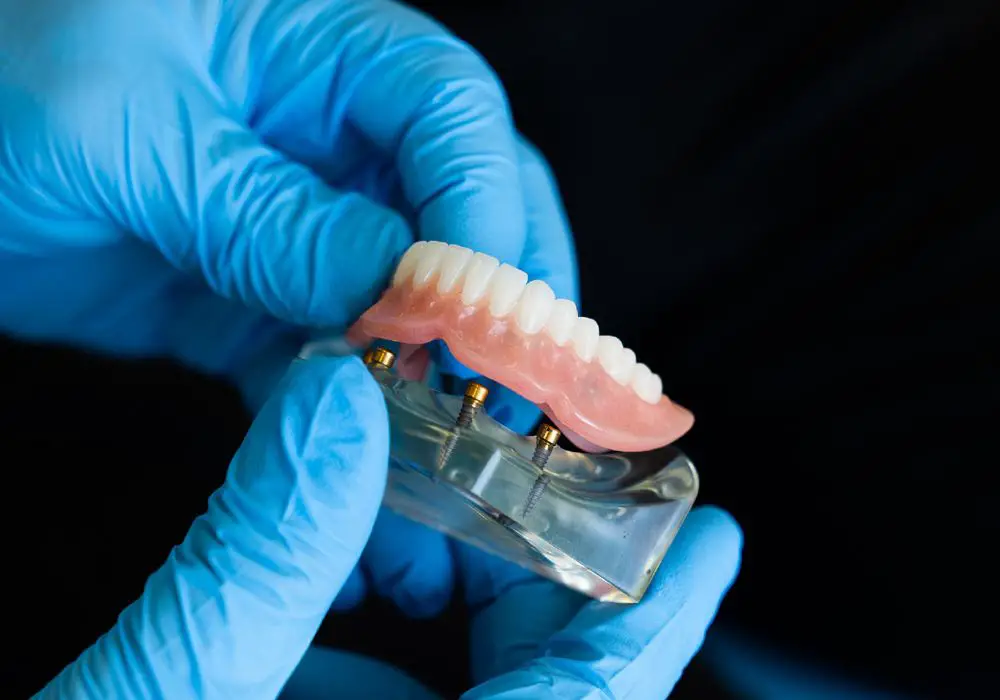
What Are Dentures?
Dentures are removable dental appliances used to replace missing teeth and surrounding tissues. They are custom-made to fit your mouth and can be made from a variety of materials, including acrylic, porcelain, and metal.
Types of Dentures
There are two main types of dentures: complete and partial.
Complete Dentures
Complete dentures are used when all of the teeth are missing. They can be either conventional or immediate. Conventional dentures are made after the teeth have been removed and the gum tissue has healed, which can take several months. Immediate dentures are made in advance and can be placed immediately after the teeth are removed. However, because the bones and gums may shrink over time, immediate dentures require more adjustments to fit properly.
Partial Dentures
Partial dentures are used when some natural teeth remain. They can be either removable or fixed. Removable partial dentures consist of replacement teeth attached to a gum-colored plastic base, which is connected by metal framework that holds the denture in place in the mouth. Fixed partial dentures, also known as dental bridges, are cemented in place and attached to adjacent natural teeth.
In conclusion, dentures are a common solution for missing teeth and can be made from various materials. Understanding the different types of dentures can help you make an informed decision about which option is best for you.
Acrylic in Dentistry
Properties of Acrylic
Acrylic is a type of plastic that is commonly used in dentistry due to its unique properties. It is lightweight, durable, and can be easily molded into different shapes and sizes. Acrylic is also resistant to staining and can be easily polished to maintain its appearance.
One of the most significant advantages of acrylic is its biocompatibility, which means that it is safe to use in the human body without causing any adverse reactions. This makes acrylic an ideal material for dentures, as it can be used to create a comfortable and natural-looking replacement for missing teeth.
Why Acrylic Is Used
Acrylic is a popular material for dentures because it is easy to work with and can be customized to fit the unique needs of each patient. Dentures made from acrylic are typically less expensive than those made from other materials, such as porcelain.
Acrylic dentures can also be repaired easily if they become damaged or broken. Dentists can use acrylic resin to fill in cracks or gaps in the denture, restoring its function and appearance.
Overall, acrylic is a versatile material that has many benefits for use in dentistry. Its properties make it an ideal choice for creating comfortable, natural-looking dentures that can be customized to fit the unique needs of each patient.
Acrylic Denture Teeth
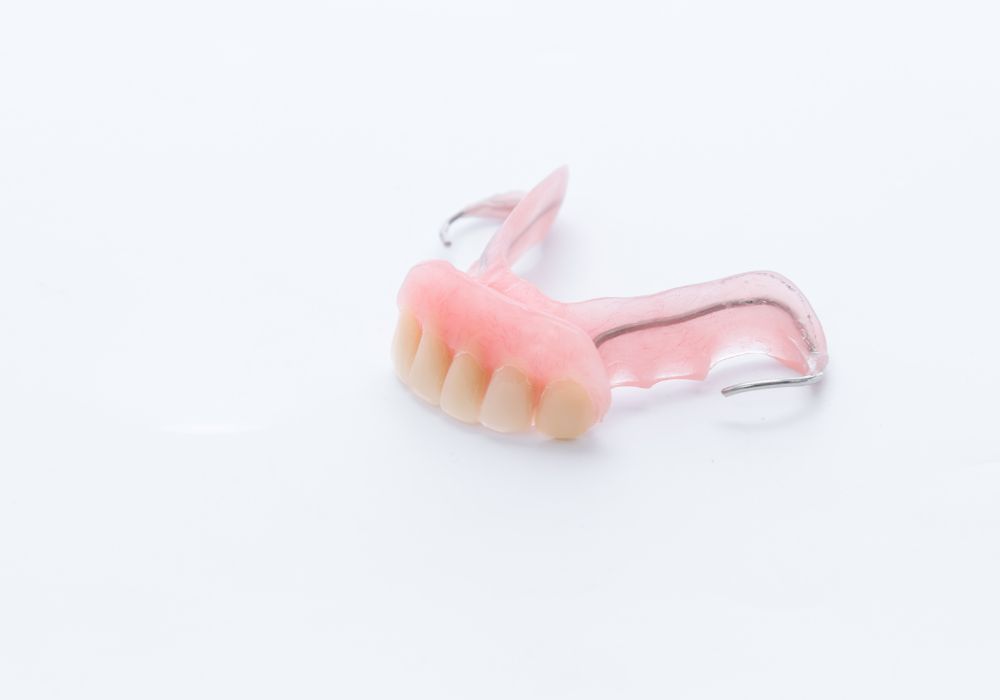
If you’re considering getting dentures, you may be wondering about the materials used to create them. One common material used for denture teeth is acrylic. Here’s what you need to know about acrylic denture teeth.
Composition of Acrylic Denture Teeth
Acrylic denture teeth are made from a type of plastic called polymethyl methacrylate, or PMMA. This material is strong, durable, and can be colored to match the shade of your natural teeth. It’s also non-toxic and hypoallergenic, making it a safe choice for many people.
Manufacturing Process
The manufacturing process for acrylic denture teeth involves several steps. First, a mold is made of your mouth to ensure a proper fit. Then, the acrylic material is heated and poured into the mold. Once the material cools and hardens, the denture teeth are trimmed and polished to create a natural-looking finish.
Acrylic denture teeth can be used for both full and partial dentures. They’re also easy to repair if they become damaged or worn over time. However, they may not be as strong as other materials like porcelain or ceramic, so they may not be the best choice for people who grind their teeth or have a strong bite.
Overall, acrylic denture teeth can be a great option for many people who need dentures. They’re strong, durable, and can be customized to match the look of your natural teeth. If you’re considering dentures, talk to your dentist about whether acrylic denture teeth are the right choice for you.
Advantages and Disadvantages of Acrylic Denture Teeth
If you’re considering getting dentures, you might be wondering about the different materials used for the teeth. One of the most common materials used for denture teeth is acrylic. Here are some advantages and disadvantages of acrylic denture teeth to help you make an informed decision.
Pros of Acrylic Denture Teeth
- Affordability: Acrylic denture teeth are less expensive compared to other materials, making them a popular choice for people on a budget.
- Easy to adjust: Acrylic is a flexible material, which means that dentures made with acrylic teeth can be easily adjusted and relined to ensure a comfortable fit.
- Lightweight: Acrylic denture teeth are lightweight, making them more comfortable to wear than dentures made with heavier materials.
- Natural appearance: Acrylic teeth can be made to look very natural, with a range of shades and shapes available to match your natural teeth.
Cons of Acrylic Denture Teeth
- Less durable: Acrylic is not as durable as other materials, such as porcelain, and can wear down over time with regular use.
- Prone to staining: Acrylic denture teeth can become stained over time, especially if you consume foods and drinks that are known to cause staining, such as coffee and red wine.
- Less realistic: While acrylic teeth can be made to look natural, they may not have the same level of realism as other materials, such as porcelain.
Overall, acrylic denture teeth can be a good option for those looking for an affordable and lightweight solution. However, if you’re looking for a more durable and realistic option, you may want to consider other materials. It’s important to discuss your options with your dentist to determine which material is best for your specific needs.
Alternative Materials for Denture Teeth
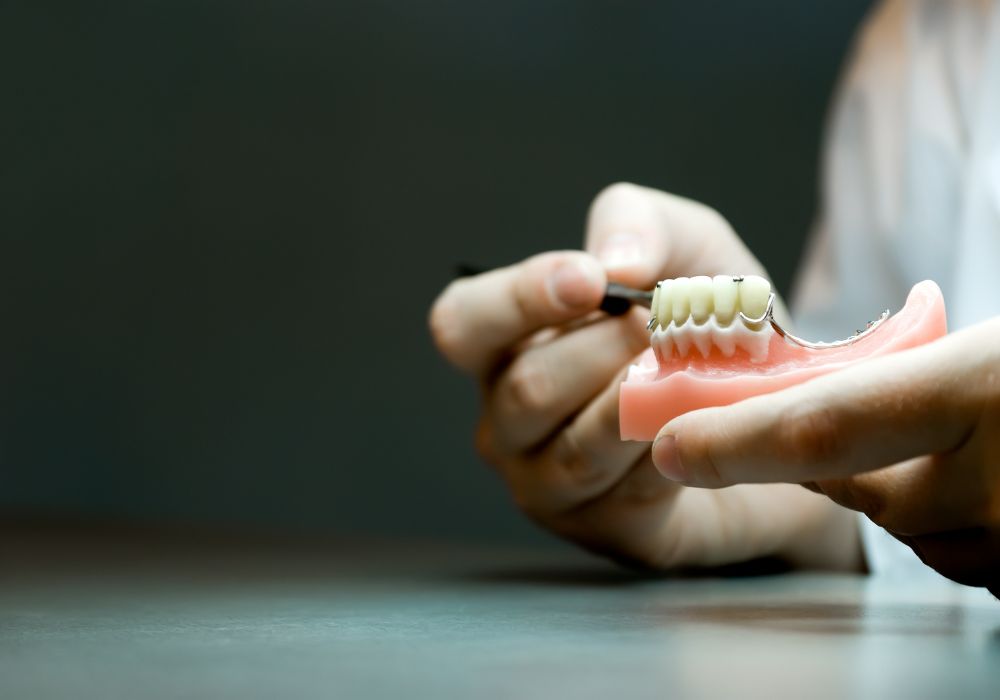
If you’re considering dentures, you might be wondering whether acrylic is the only material available for denture teeth. Fortunately, there are other options available to you. In this section, we’ll explore two of the most common alternatives to acrylic denture teeth: porcelain and composite.
Porcelain Denture Teeth
Porcelain denture teeth are made from a type of ceramic material that is known for its durability and natural-looking appearance. Porcelain teeth are highly resistant to staining and are designed to mimic the translucency of natural teeth.
One of the biggest benefits of porcelain denture teeth is their longevity. With proper care, porcelain teeth can last for many years, making them a great investment for those who want a long-term solution for their dentures.
However, porcelain teeth are generally more expensive than acrylic teeth and can be more difficult to repair if they become damaged. Additionally, porcelain teeth can be more brittle than acrylic teeth and are more likely to chip or break if they are dropped or subjected to impact.
Composite Denture Teeth
Composite denture teeth are made from a type of resin material that is designed to mimic the appearance of natural teeth. Composite teeth are more affordable than porcelain teeth and are generally easier to repair if they become damaged.
One of the biggest benefits of composite teeth is their flexibility. Unlike porcelain teeth, which are brittle and prone to chipping or breaking, composite teeth are more resistant to impact and can flex slightly without cracking.
However, composite teeth are generally less durable than porcelain teeth and may need to be replaced more frequently. Additionally, composite teeth are more prone to staining and discoloration than porcelain teeth, which can make them more difficult to maintain over time.
Overall, both porcelain and composite denture teeth offer unique benefits and drawbacks. Your choice of denture teeth will depend on your individual needs and preferences, as well as your budget. Be sure to discuss your options with your dentist or denturist to determine which type of denture teeth is right for you.
Maintaining Acrylic Denture Teeth
If you have dentures, it’s important to take proper care of them to ensure they last as long as possible. One of the most common materials used for denture teeth is acrylic. Here are some tips on how to maintain your acrylic denture teeth.
Cleaning and Care
Keeping your dentures clean is essential to maintaining your oral health. Here are some tips on how to clean and care for your acrylic denture teeth:
- Brush your dentures daily with a soft-bristled toothbrush and mild soap or denture cleaner.
- Rinse your dentures thoroughly after each meal to remove any food particles that may have become trapped.
- Soak your dentures in a denture cleaning solution overnight to remove any stubborn stains or bacteria.
- Avoid using hot water or abrasive cleaners, as these can damage the acrylic material.
- Store your dentures in a clean, dry place when not in use.
When to Replace
Even with proper care, dentures will eventually need to be replaced. Here are some signs that it may be time to replace your acrylic denture teeth:
- Your dentures are cracked, chipped, or broken.
- Your dentures no longer fit properly and are causing discomfort or irritation.
- Your dentures are more than 5-7 years old.
If you notice any of these signs, it’s important to schedule an appointment with your dentist to have your dentures evaluated. They can help you determine if your dentures need to be repaired or replaced entirely.
By following these tips, you can help ensure that your acrylic denture teeth last as long as possible and keep your smile looking great.
Frequently Asked Questions
What materials are commonly used to make dentures?
Dentures are made of a combination of materials, including acrylic resin, porcelain, and metal. The base of the denture is usually made of acrylic resin, which is a durable and lightweight material.
What are the different types of denture teeth?
There are two main types of denture teeth: acrylic and porcelain. Acrylic teeth are made of a plastic material and are more affordable than porcelain teeth. Porcelain teeth, on the other hand, are made of a ceramic material and are more expensive but also more durable and natural-looking.
What is the difference between acrylic and porcelain denture teeth?
Acrylic denture teeth are less expensive and easier to repair, but they are also less durable and can wear down faster than porcelain teeth. Porcelain teeth, on the other hand, are more durable and natural-looking, but they are also more expensive and can be more difficult to repair.
Are acrylic dentures a good option?
Acrylic dentures are a good option for many people, especially those who are looking for an affordable and easy-to-repair option. However, they may not be as durable or natural-looking as porcelain dentures.
What is the pink part of dentures made of?
The pink part of dentures is called the denture base and is usually made of acrylic resin. The denture base is designed to fit snugly against the gums and provide support for the denture teeth.
Which type of denture teeth is better: acrylic or porcelain?
The choice between acrylic and porcelain denture teeth depends on your individual needs and preferences. Acrylic teeth are more affordable and easier to repair, while porcelain teeth are more durable and natural-looking. Talk to your dentist to determine which option is best for you.

